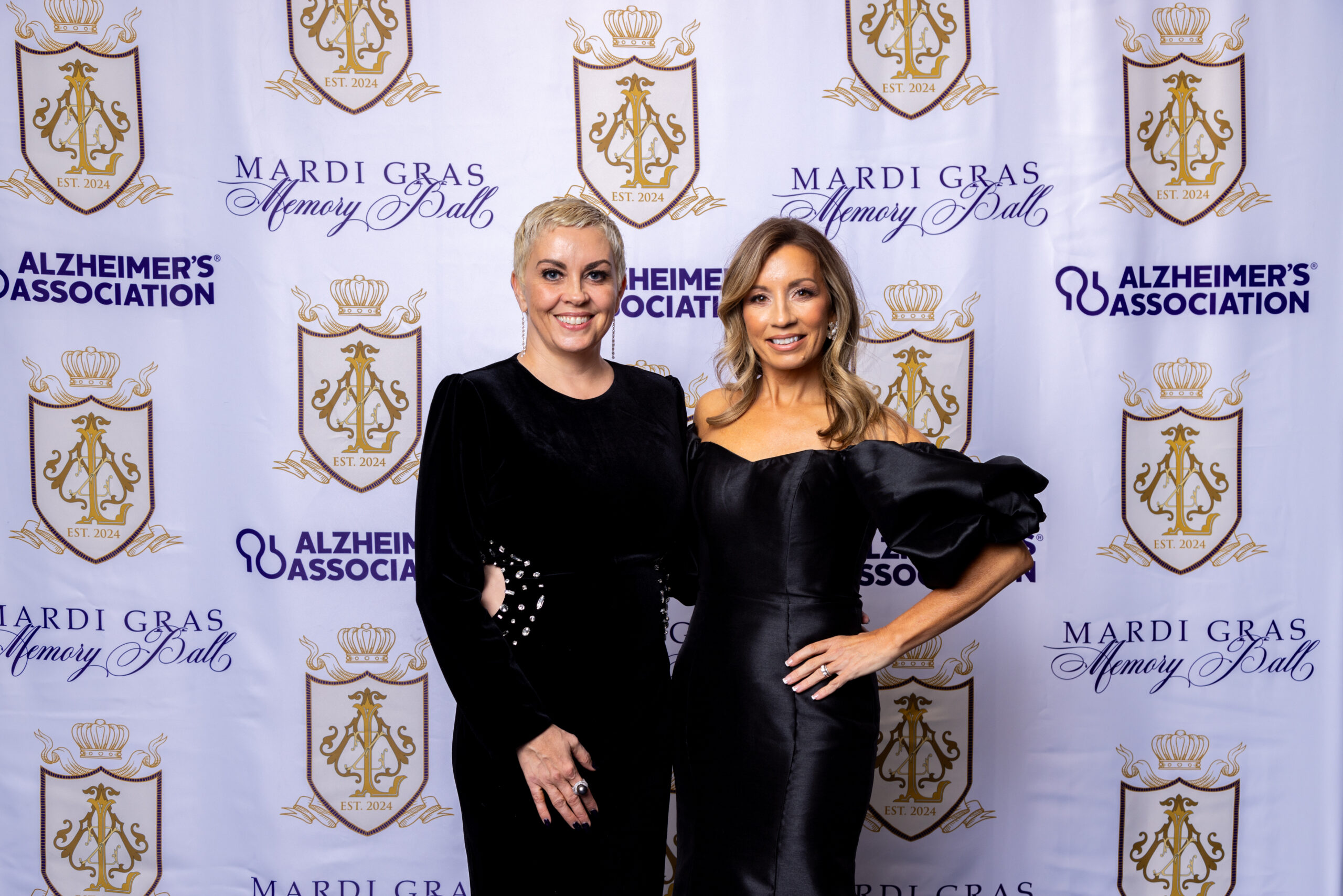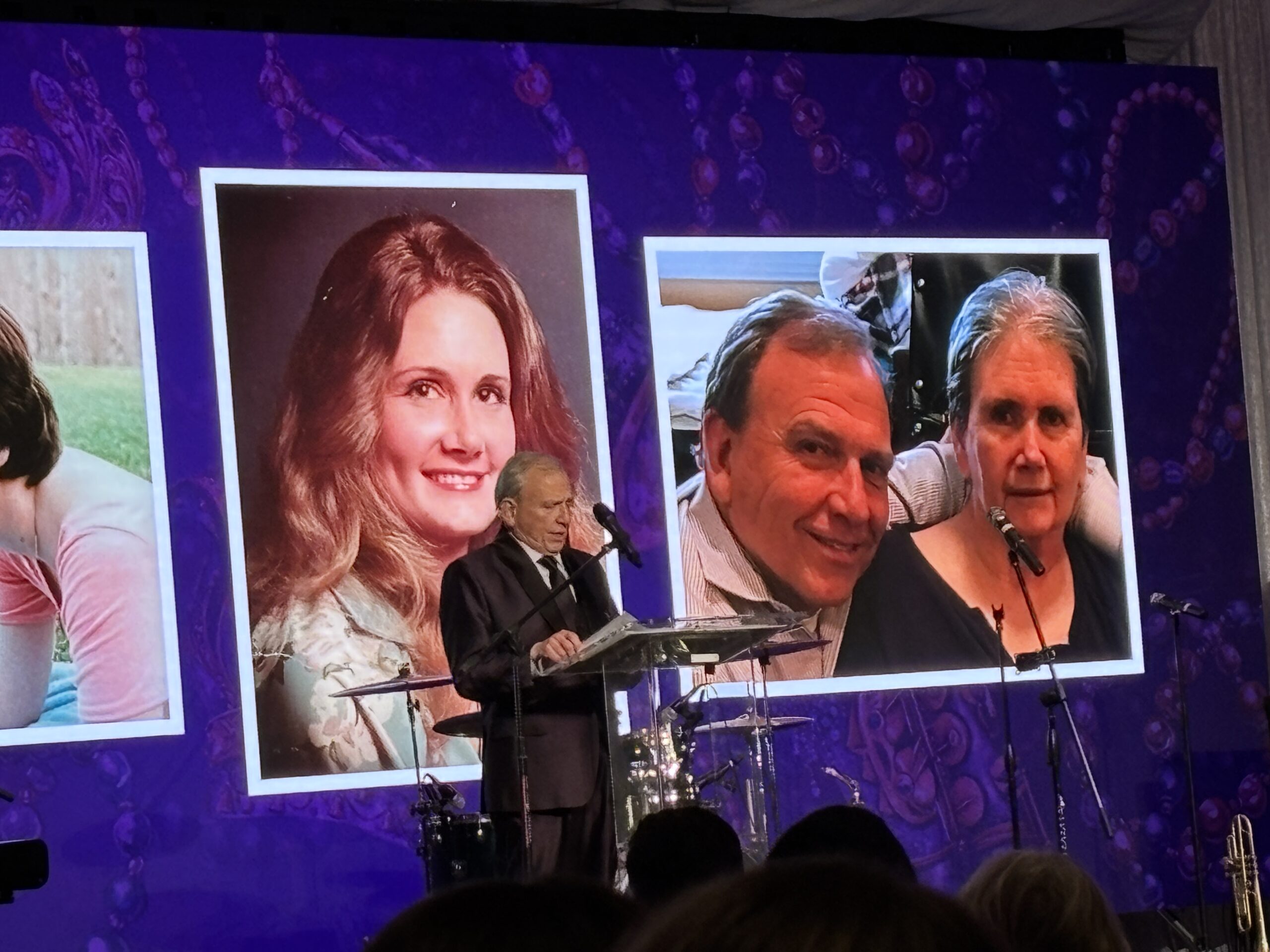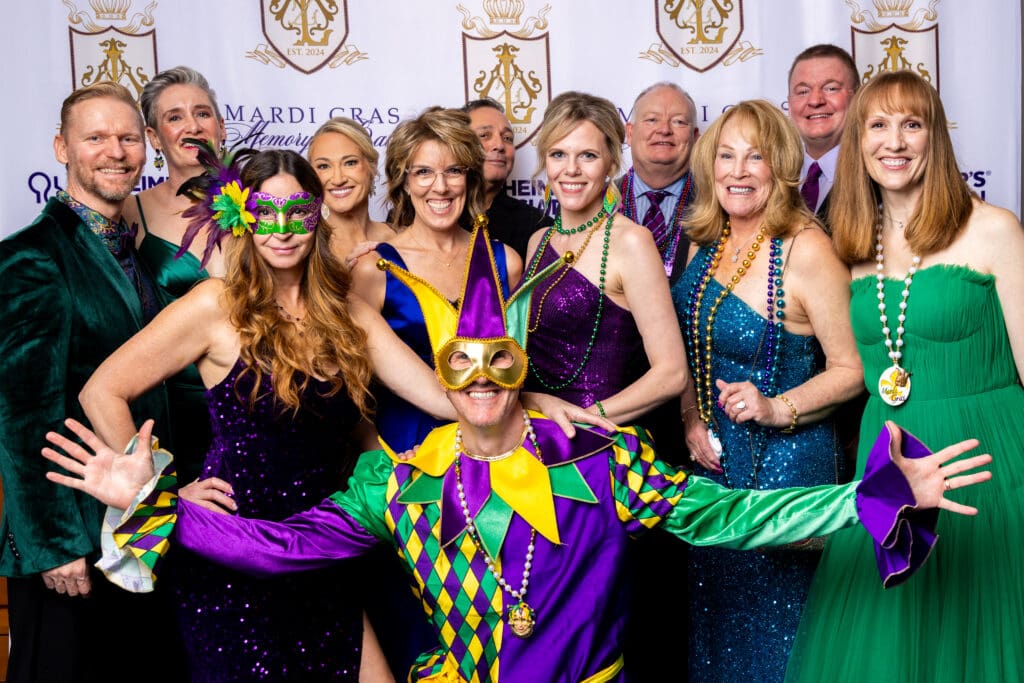The Woodlands’ Own Mardi Gras Moment Is a Memory Booster — Alzheimer Caregiver Stories Steal the Show
Brass Bands and Big Hearts Come Together for a Cause That's More Vital Than Ever These Days
BY Laura Landsbaum // 03.20.25Angela and Forest Cavaney with friends at the Memory Ball supporting the Alzheimer's Association. (Photo courtesy of Focus Photography Woodlands)
The Mardi Gras Memory Ball isn’t just a night of New Orleans-style revelry. It’s a chance to support a cause that affects millions of lives. The Alzheimer’s Association Houston and Southeast Texas Chapter raised $195,000 at its second annual event, with the funds dedicated to Alzheimer’s care, support, research and awareness.
But raising funds was only one goal of the evening. The event was also about giving hope to those affected by the heartbreaking disease.
This year’s event was co-chaired by Leslie Reilly and Bonnie Sims, and hosted by the esteemed Krewe of ALZ at The Woodland Waterway Marriott hotel. KHOU’s Marcelino Benito served as the master of ceremonies, sharing his personal story of losing his mother to Alzheimer’s disease. It was a raw and powerful moment that reminded everyone why they were there — because Alzheimer’s affects us all.
Benito also regularly reports on the disease’s impact and joined the Alzheimer’s Association’s Houston and Southeast chapter’s Board of Directors in 2023 as a way to honor his mother Nancy and help raise awareness.

A live New Orleans-style brass band kept the crowd in a giving mood throughout the evening. The 2025 court of Krewe of ALZ, made up of dedicated community leaders and passionate advocates for Alzheimer’s and dementia, also played a key role in the event.
The Krewe crowned Charissa and Russ Kovin as the King and Queen of the season. The royal coronation was a highlight, symbolizing both the fun and the commitment to fighting the disease.
A Moving Mission-Critical Message
The night’s Mission Speaker was Herb Magley, recipient of the 2024 Alzheimer’s Association Harry Johns Award for Volunteer Excellence. A former resident of The Woodlands, Magley is now an advocate and board member for his local Alzheimer’s Association chapter in Oklahoma. He shared his caregiving story about his wife Gail, who passed away from the disease in 2015. The Alzheimer’s Association’s services played a significant role in his journey.
Magley’s story of grief was a testament to how adversity can drive us to make a difference. “My daughter Bethany was 16 when her mom, my wife, started showing signs of Alzheimer’s,” Magley says. “Ours was a terrifying, tough, brutal 13-year journey. But we tried to make the best of it. That passion drove me to dedicate my life to others on their Alzheimer’s journeys.
“I now work longer and harder than ever. I don’t get paid for my services, and I don’t want to. My reward is hearing caregivers say, ‘You saved my life.’ I don’t know where I’d be right now without it.”
Magley actively engages in all aspects of the Association’s mission. From leading support groups to fundraising activities to advocating and sharing his story, Magley is a full-mission volunteer. His dedication to the cause is a reminder that everyday heroes often make the biggest impact.

“We stumbled onto the Alzheimer’s Association,” Magley says. “It saved my life by providing a younger-onset support group, where we found others on the same journey. We were no longer alone.”
The support from the Alzheimer’s Association was critical for Magley and his family. “They offered educational classes that taught me to be a better caregiver,” he says. “I wasn’t stepping on caregiving landmines anymore. Furthermore, they provided a helpline staffed by counselors available 24/7.”
Magley’s experience shows that the other victim of this disease is often the family caregiver.
The Impact of Alzheimer’s
According to the Alzheimer’s Association, almost 7 million Americans are living with Alzheimer’s disease. Texas accounts for approximately 400,000 of those individuals. Alzheimer’s and other dementias claim more lives annually than breast cancer and prostate cancer combined. Without significant medical breakthroughs, the number of people aged 65 and older with Alzheimer’s could soar to almost 13 million by 2050.



























_md.jpg)








_md.jpeg)
